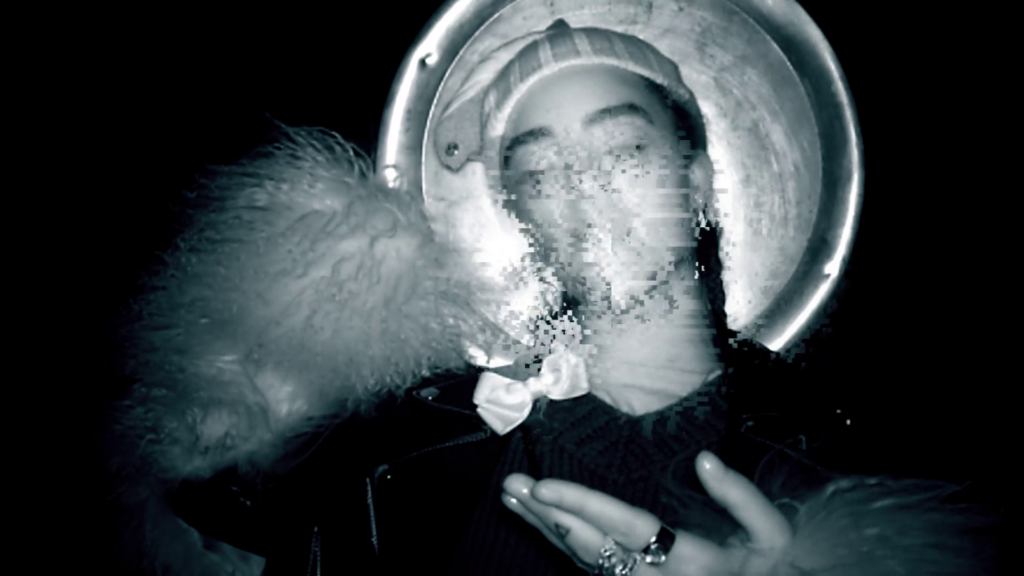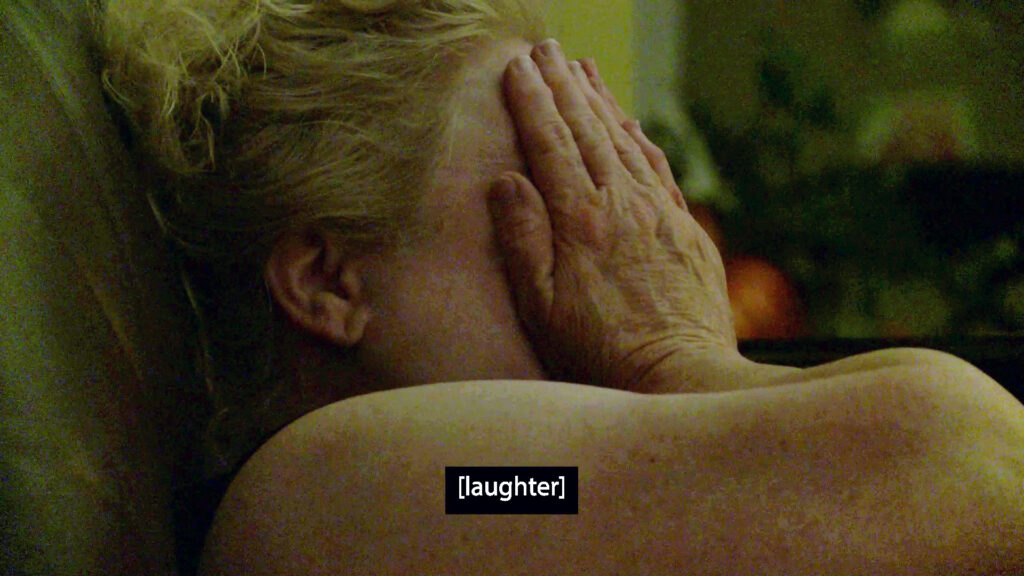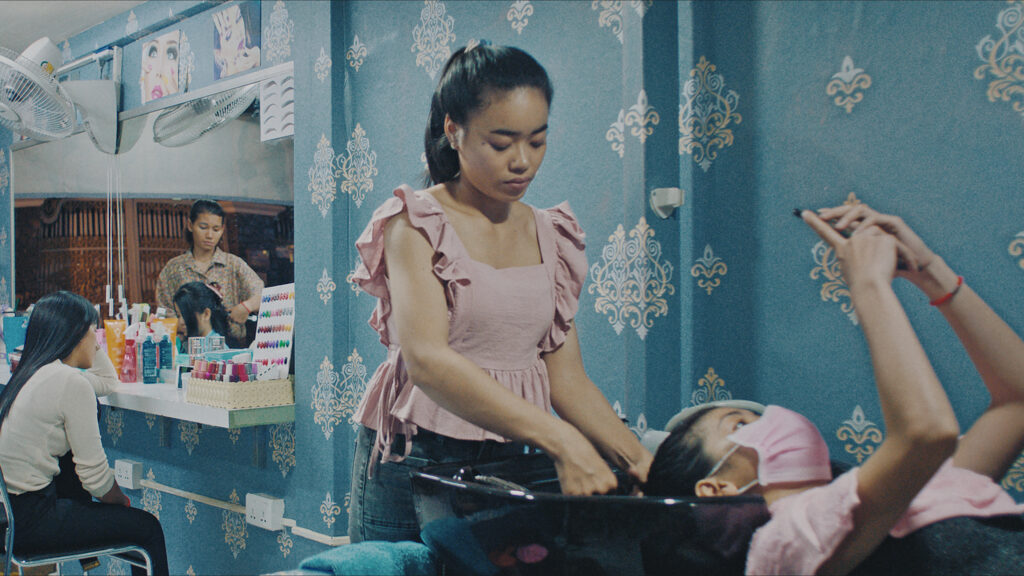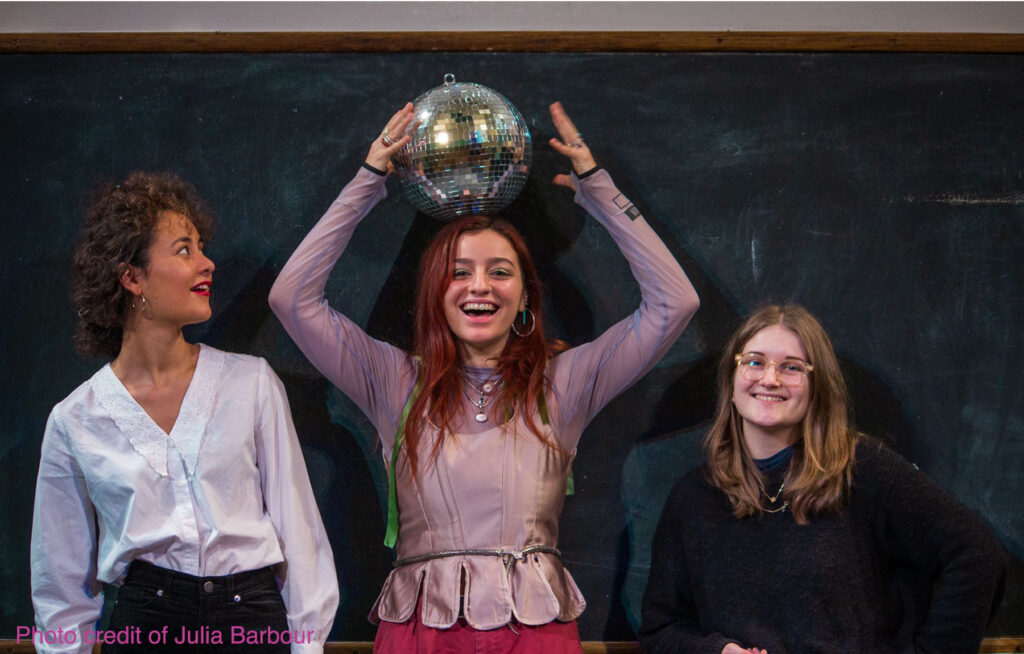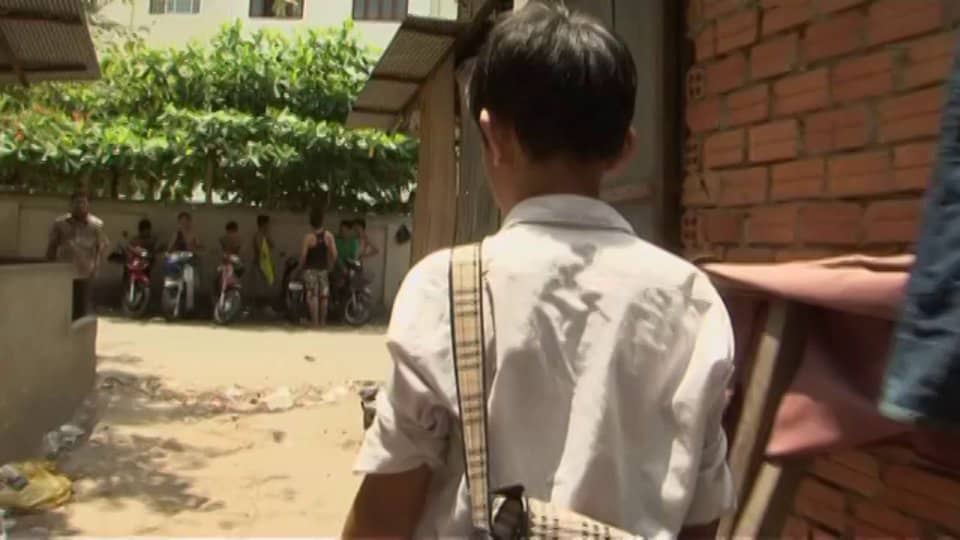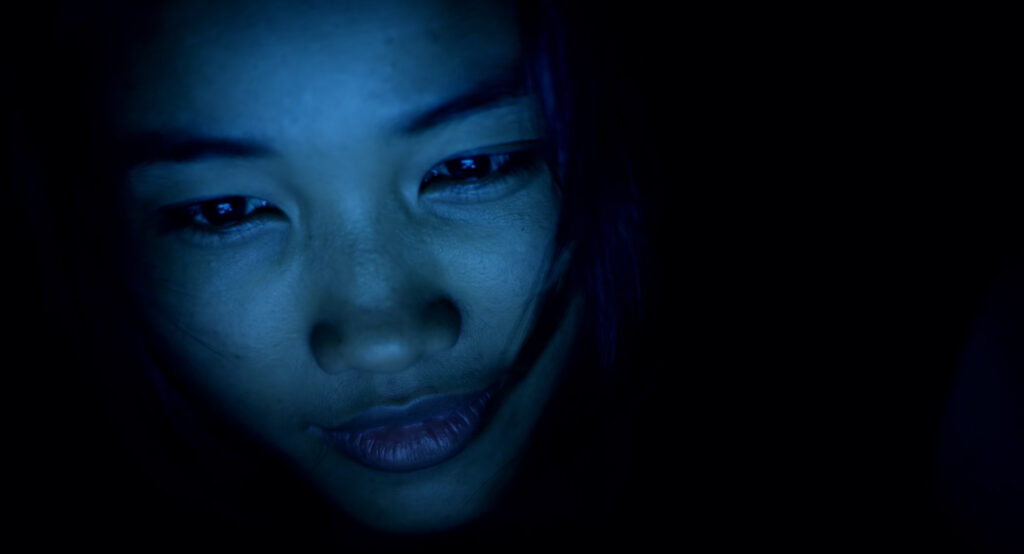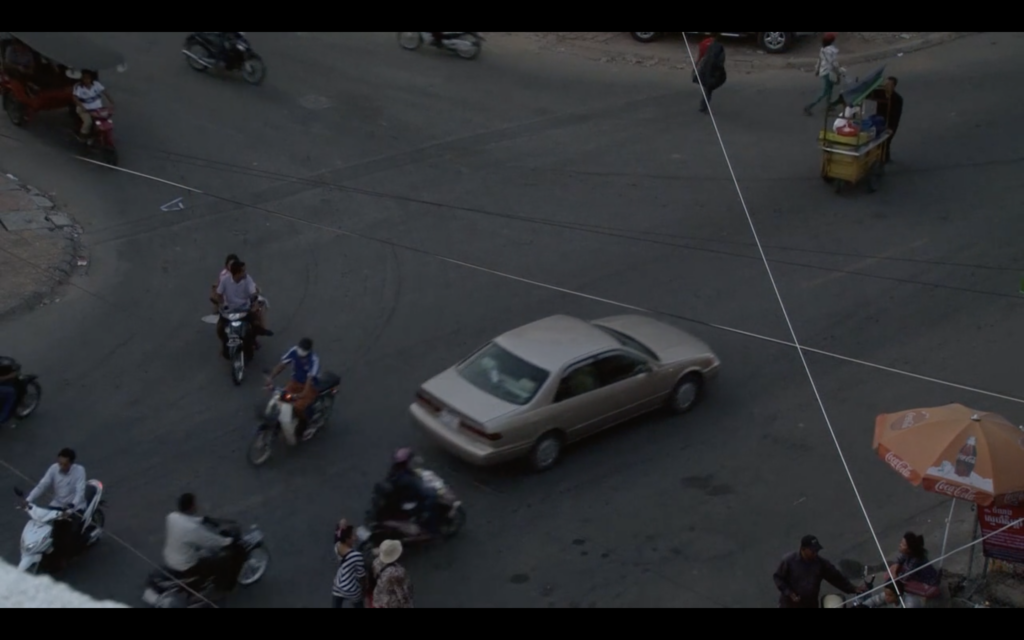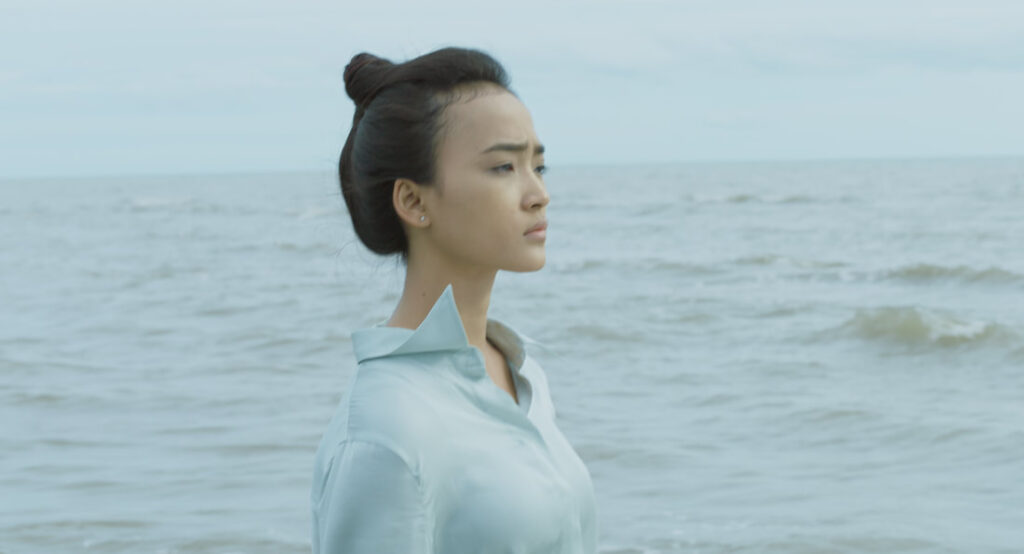Through Arabic poetry, collective history and what artist Sophia Al-Maria calls “an assemblage of exquisite cadaver moments”, Tender Point Ruin traverses the gifts, the vulnerabilities and the detritus of art-making.
Programmes
Through an expertly pitched blend of realistic fiction, Sunrise in My Mind shows a view of a beauty salon in Phnom Penh at night which sparkles like a jewel box. The patterned aquamarine wallpaper plays off of the many pink objects inside, including the shirt of the film’s protagonist Pich, a beautician whose mind is clearly elsewhere. Against the strains of a soul song from the early 1970s by Pan Ron, the co-workers’ conversation moves toward the guy who has a crush on Pich, to which she acts demure and with indifference (but also with a private smile to herself). But Lay, a deliveryman who rides a motorbike through the city at night, reliably shows up to the salon. After asking Pich to wash his hair, we witness a moment of intimacy, though it’s unclear whether this is real or imagined.
In suspiration!, Taylor brings false promises made by the United Kingdom to the surface with pieces of news footage and a spoken testimony describing racism in the UK. Amongst this bleakness, moments of beauty shine through, indicating the possibility for reassurance and hope.
When Amongst Our Own is an online work and exhibition designed by Danielle Braithwaite Shirley produced and commissioned by Berwick Film & Media Arts Festival, Circuit NZ, New Zealand and Spike Island, Bristol. It includes a sound work by Shenece Oretha, a publication by Ebun Sodipo and a film by Day Eve.
Available online from Monday 13th September
SEEMAWORLD is an immersive, multi-channel realm and streaming facility. It’s comprised of the mimicry of multiple amenities and services—which act as portals to a specific aspect of SEEMAWORLD. An interactive installation, it shows born-digital artefacts alongside digitised works of traditional media.
As a colony of SEEMAWORLD, BERWICKWORLD transports viewers firmly into the cinematics of the cinema and magnifies Fan Labour as behaviour, thought and form. —Seema Mattu
Available online from Monday 13th September
These are notes on planning and programming the Festival this year, open for comment on a google doc.
Fragments from documents that guided our planning and programming process are opened out for comment to accredited guests between 15-22 September after which we will host a discussion between Festival Director Peter Taylor, Head of Programming Jemma Desai and writer and programmer Abby Sun reflecting on the collective writing process.
Accredited guests will be able to access the document here from the 15 September, the public event on will take place on the 24 September and will be open to all ticket and pass holders.
Back Inside Ourselves is an online exhibition inspired by S. Pearl Sharp’s Back Inside Herself which plays in our Essential Cinema Strand.
Featuring three recent works by filmmakers Ufuoma Essi, Tako Taal, and Rhiana Bonterre.
We recommend you find a quiet space, some headphones, and clear some time to explore the different elements of this work. The presentation plays on a loop opening out the possibility of durational repetitions, witnessing and revelation.
Available online from Friday 17 September coinciding with a 24 hour screening of S Pearl Sharp’s Back Inside Herself & an in conversation between the director and poet Sarah Lasoye.
Supported by Berwick Visual Arts.
This collection of short form work by the Cambodian filmmakers associated with the production company Anti-Archive shows the breadth and quality of their filmmaking.


